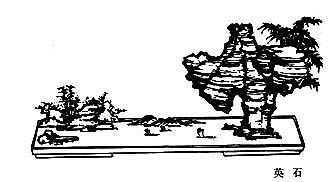36 Ji 
 – Les 36 stratagèmes
– Les 36 stratagèmes
Répertoire de proverbes tactiques liés au Yi Jing et aide-mémoire pour se tirer de situations conflictuelles. Trad. Doc Mac Jr (fr) et Vestappen (en)
13. « Battre l'herbe pour effrayer le serpent »
14. « Faire revivre un corps mort »
15. « Attire le tigre hors de la montagne »
16. « Laisser s'éloigner pour mieux piéger »
17. « Se défaire d'une brique pour attirer le jade »
18. « Pour prendre des bandits d'abord prendre leur chef »
36ji III. 18.
« Pour prendre des bandits d'abord prendre leur chef »
Vise le cheval en premier afin d'atteindre le cavalier.
Briser la force principale de l'ennemi et capturer les chefs pour anéantir tout l'ensemble.
Le dragon contraint de se battre sur le sol est dans une impasse.*
Cette expression est issue d'un poème de Du Fu :
« Pour dessiner un arc, dessines-en un qui soit puissant
Pour choisir des flèches, prends celles qui sont longues
Pour atteindre des cavaliers, atteins d'abord leurs montures
Pour prendre des bandits, prends d'abord leur chef. »
Le terme de bandit est ici un nom d'emprunt pour désigner les forces ennemies qui, après la capture de leur chef, s'éparpilleront et s'enfuiront. Quand vous combattez un tel ennemi, vous pouvez vous contenter de prendre le meneur et ses compagnons succomberont.
Le plus souvent, le quartier général de l'ennemi est situé à la position la plus favorable. Dans le but de vaincre un semblable adversaire, vous pouvez détruire d'abord ses forces armées. Une telle intervention n'est pas souhaitable mais souvent nécessaire en temps de guerre, vous pouvez pourtant l'éviter quand il arrive que le centre de l'adversaire soit situé à un point faible. En cherchant une brèche dans la ligne de défense ennemie, vous pouvez contourner ses bastions fortifiés et attaquer sa base principale par un chemin détourné. Après la capture du commandant adverse, ses subordonnés ne seront plus capables de se battre par eux-mêmes.
* Symbole du trait supérieur de l'hexagramme n°2 du Yi Jing : Kun (la Terre)... Dans un contexte militaire, un chef qui entreprend « au delà de ses possibilités » attirera sur lui l'attention et la colère des puissants. La confrontation qui en suivra tournera en sa défaveur.
Doc Mac Jr
To Catch the Bandits First Capture Their Leader
If the enemy's army is strong but is allied to the commander only by money or threats then, take aim at the leader. If the commander falls the rest of the army will disperse or come over to your side. If, however, they are allied to the leader through loyalty then beware, the army can continue to fight on after his death out of vengeance.
Spring and Autumn Period China
In 756 BC the rebel commander Yin Ziqi led an army to lay siege against the strategic city of Suiyang. The defending commander, Zhang Xun, noticed that Yin Ziqi oversaw the siege from well outside the range of the city's archers. He believed that if he could take out the leader the rebel's morale would sink and he would be able to launch a counter attack. He devised a plan with his best archers. The next time the rebels assailed the wall they were to shoot back using the branches of trees. When Yin Ziqi heard that the defenders were reduced to shooting with branches he felt certain the city was ready to be taken. Before the next assault he moved in closer to better oversee the final victory. Riding atop his horse he unknowingly came within range of the archers who had saved their arrows for just such a moment. One arrow hit Yin Ziqi in the left eye killing him instantly. The spectacle of their commander's death in front of almost the entire rebel army served to demoralize them to such an extent that they dispersed the field.
Verstappen

Les 36 stratagèmes – 36 Ji III. 18. – Chinois off/on – Français/English
AliasThirty-Six Strategies, Thirty-Six Stratagems, Secret Art of War, Les 36 stratagèmes, Les Trente-six stratégies
Le Canon des Poèmes, Les Entretiens, La Grande Étude, Le Juste Milieu, Les Trois Caractères, Le Livre des Mutations, De la Voie et la Vertu, 300 poèmes Tang, L'Art de la guerre, Trente-six stratagèmes
Bienvenue, aide, notes, introduction, table.
Index – Contact – Haut de page
